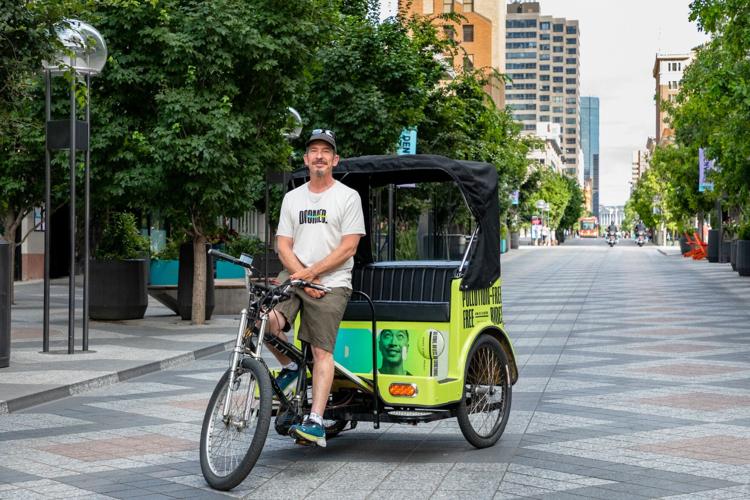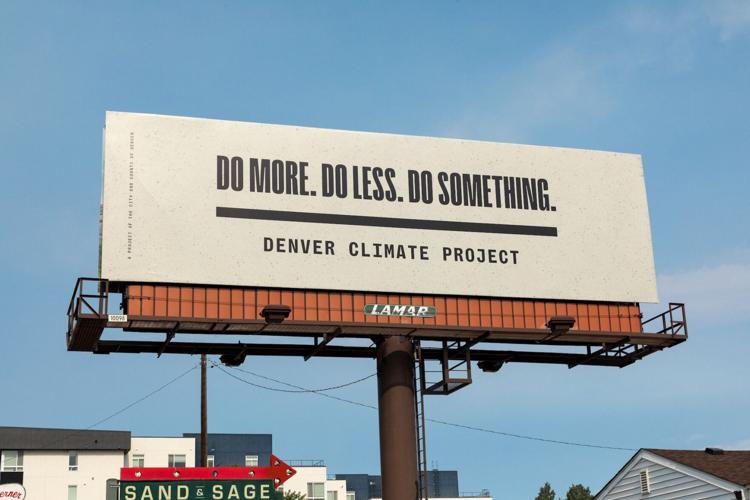‘Eat less meat:’ Denver promotes ‘plants-based’ diet in $3 million marketing campaign on climate goals
“Eat less meat.”
“Eat more plant-based meals.”
“Vote for climate-conscious leaders.”
The tips come from a “do more” list that Mayor Mike Johnston’s administration posted as part of its $3 million marketing campaign that aims to persuade residents to help the city reach its climate goals.
Additionally, posters have begun popping up around the city, including slogans that say, “It’s the end of the end of the world.” Behind the public relations blitz is the Office of Climate Action, Sustainability and Resiliency’s “Do more. Do less. Do something.” campaign.
Notably, the city said eating less meat and a host of other actions would “help the planet and protect” communities.
The Johnston administration is not the first to promote a “less meat” diet.
In 2021, Gov. Jared Polis proclaimed a “MeatOut Day” to encourage Coloradans to consider “plants-based” food. The proclamation incensed Colorado ranchers.
Colorado’s agricultural industry is the state’s second-largest economic driver, accounting for more than $47 billion in activity and employing more than 195,000 people. The export of Colorado cattle as of 2024 generated nearly $4.5 billion, making Colorado one of the 10 producers in the nation.
Denver’s emphasis on eating “less meat” likely emanates from the argument by climate advocates that ranching is a major source of greenhouse emissions and that preferring a “plants-based” diet would ultimately mean decreasing the world’s carbon footprint.
Advocates of the agriculture industry counter that ranchers and farmers have been in the frontlines of adopting new technology, notably mindful of ethically raising animals and the climate, and that the industry has actively decreased its carbon footprint in the last several decades.
The “Do more. Do less. Do something.” campaign is funded by Denver’s Climate Protection Fund, which voters approved to raise $40 million each year for “urgent action to mitigate the causes of climate change.”
“Every day, I see Denverites come together to support our city, and climate action is no exception,” Johnston said in a news release. “This campaign makes it easier for community members to take easy, everyday actions to help meet our shared climate goals.”
“Together, we can do more of what helps, less of what hurts, and work to make Denver a better place not just for us, but for our kids and grandkids who will call our city home for generations to come.”
In launching the marketing campaign, the city cited behavioral science studies showing that people are “when they can compare their actions to others,” according to the climate office.
The marketing is modeled after other Denver campaigns, such as the “truth” anti-smoking campaign and Denver Water’s “Use Only What You Need,” the city said, adding the initiative uses “creative public interventions to normalize climate action.”
“Denverites already care deeply about climate change, and we know that solving this crisis requires bold action,” said Elizabeth Babcock, executive director of the climate office. “But history shows us that major change often starts with people. When individuals act together, we have the power to shape markets, influence policy, and accelerate progress. This campaign is about showing every Denverite that their actions matter and that when we move together, we move the needle.”
Among the “do more” tips, the city said Denver residents should consider walking, biking, composting and installing a heat pump.
And planting a tree.
The city also urged residents to “thrift” and for restaurants to “implement a Greener by Default food menu.”
Among the “do less tips,” the Johnston administration said people should “skip the single-use service ware for take our delivery,” “drive less” and shop at a “zero waste business or refill shop.”
Residents should also “reduce the number of cars per household.”
They should “host a green meeting with sustainable snacks.”
At home, residents should use “less hot water” and “lose the lawn.”
Reporters Greta Kerkhoff and Luige del Puerto contributed to this article.







